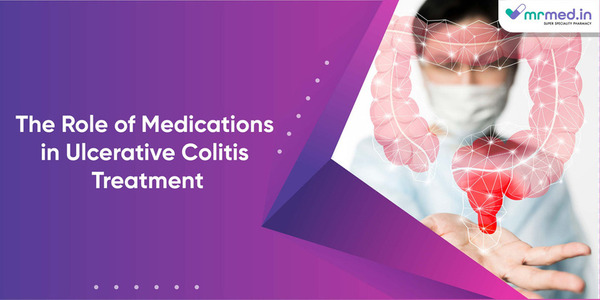Ulcerative colitis is a chronic inflammatory bowel disorder that affects the colon and rectum of individuals. It can affect the inner lining of the large intestine, which can cause changes in bowel movements. It does not show symptoms in the benign, which can cause progression of the disease without proper treatment. There is no permanent treatment for ulcerative colitis, but some strategies can manage the symptoms. Today, we are going to discuss ulcerative colitis and its treatments in this article.
Symptoms of ulcerative colitis
Ulcerative colitis symptoms can be varied based on the severity of the disease. Some of the symptoms of ulcerative colitis are given below:
- Diarrhea: Individuals may experience diarrhea, which may contain blood or pus.
- Rectal bleeding: Patients may experience a stool in the blood.
- Abdominal pain and cramping: Individuals may have abdominal pain and cramping.
- Pain in the rectal: Individuals may have pain in the rectum due to the cramps.
- The urgency to poop: An individual may have a feeling of urgency to poop but the inability to excrete it.
- Weight loss: Individuals may have a sudden weight loss.
- Fatigue: Patients may experience extreme tiredness.
- Fever: Individuals may have a rise in temperature.
Type of ulcerative colitis
- Ulcerative proctitis: A mild ulcerative colitis in individuals.
- Proctosigmoiditis: It can affect the rectum and sigmoid colon in individuals.
- Left-sided colitis: It mainly affects the left side of the colon in individuals.
- Pancolitis: It can affect the entire large intestine or bowel.
Treatment for ulcerative colitis
1. Role of Medications
Your healthcare provider can provide you with a single or a combination of medications to manage the symptoms that were caused during ulcerative colitis.
1. Aminosalicylates: Medicine like Mesalazine contains aminosalicylic acid, which helps treat ulcerative colitis by reducing gut inflammation. It is an anti-inflammatory medication that inhibits the inflammatory compounds in our body and also helps to adjust the immune response, providing relief and promoting healing in ulcerative colitis patients. For example, Pentasa 500mg tablets contain an active ingredient called mesalazine. It helps to treat ulcerative colitis and Crohn's ileocolitis in patients.
2. Corticosteroids: Corticosteroids are medicines that are used to treat inflammation ulcerative colitis (UC) patients. Medications like prednisone and budesonide are effective in treating ulcerative colitis in patients for a short-term period due to the side effects.
3. Immunosuppressants: Immunosuppressants are medications that help reduce patients' immune responses. Medications like tacrolimus and azathioprine are helpful in managing the symptoms of ulcerative colitis by reducing the immune response of the patients.
4. Janus kinase (JAK) inhibitors: A new approach to managing the symptoms caused by ulcerative colitis is JAK inhibitors. They are a type of small molecule medication that helps treat the large intestine's chronic inflammation. For example, Tofacitinib is effective in treating ulcerative colitis.
2. Surgery
If the medication is not effective in treating ulcerative colitis, it is recommended to do surgery to treat the patients. There are two types of surgery that help to treat ulcerative colitis in patients given below:
1. Proctocolectomy and ileal pouch: It is a procedure to remove the colon and rectum in the affected individuals. But, it leaves the anus intact in the patients. Your doctor will form an ileal pouch, a section of small intestines that connects to the anus.
2. Proctocolectomy and ileostomy: It is a procedure to remove the colon, rectum, and anus of the patients. After removing the large intestine part, your doctor will make an opening in your belly that connects to a pouch outside of your body (ileal stoma). This bag will help remove waste from your body (excretion).
It is recommended to speak with your doctor to get a tailored treatment plan for ulcerative colitis.
Conclusion
Ulcerative colitis involves a crucial treatment that needs to be treated properly with an appropriate medication. The lack of awareness about the disease and its symptoms will often lead to complications in treating it. Consult your doctor if you're facing any gastrointestinal symptoms to avoid the ulcerative colitis complication.




